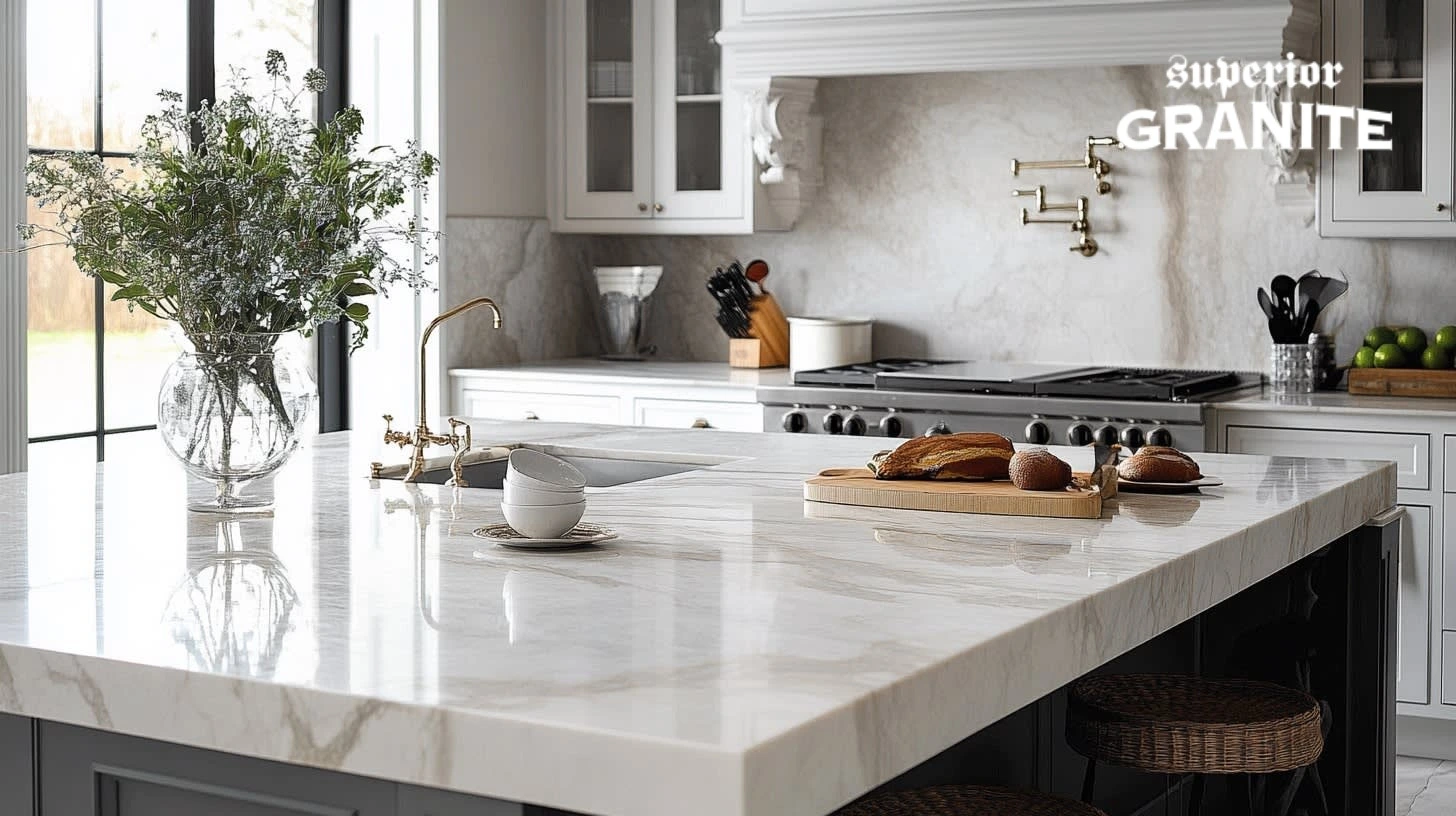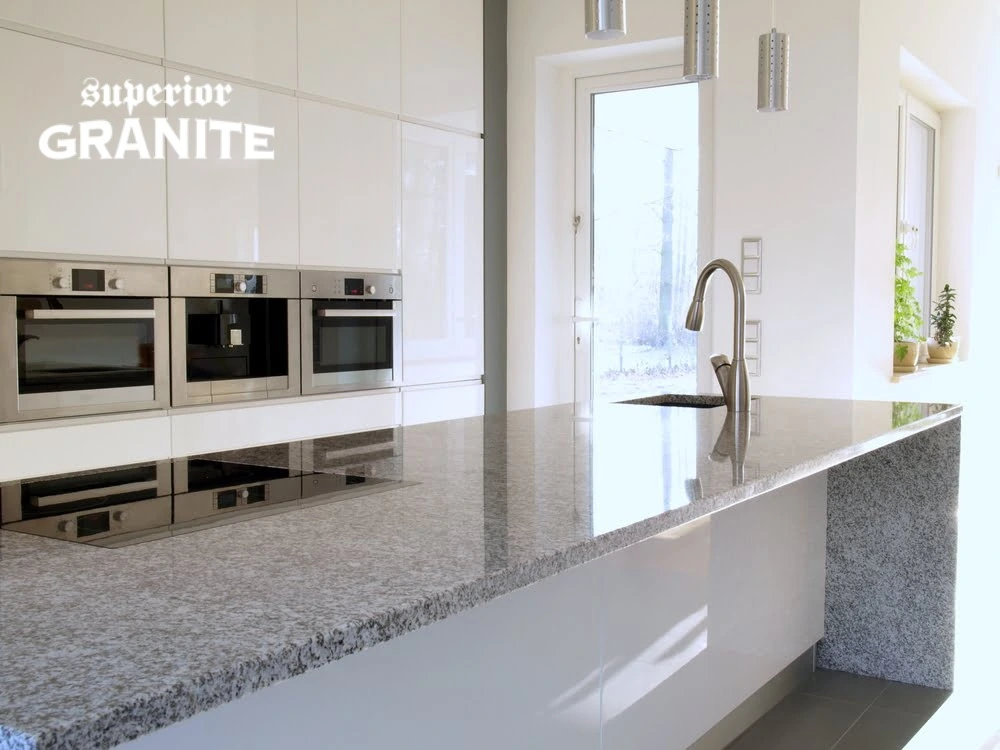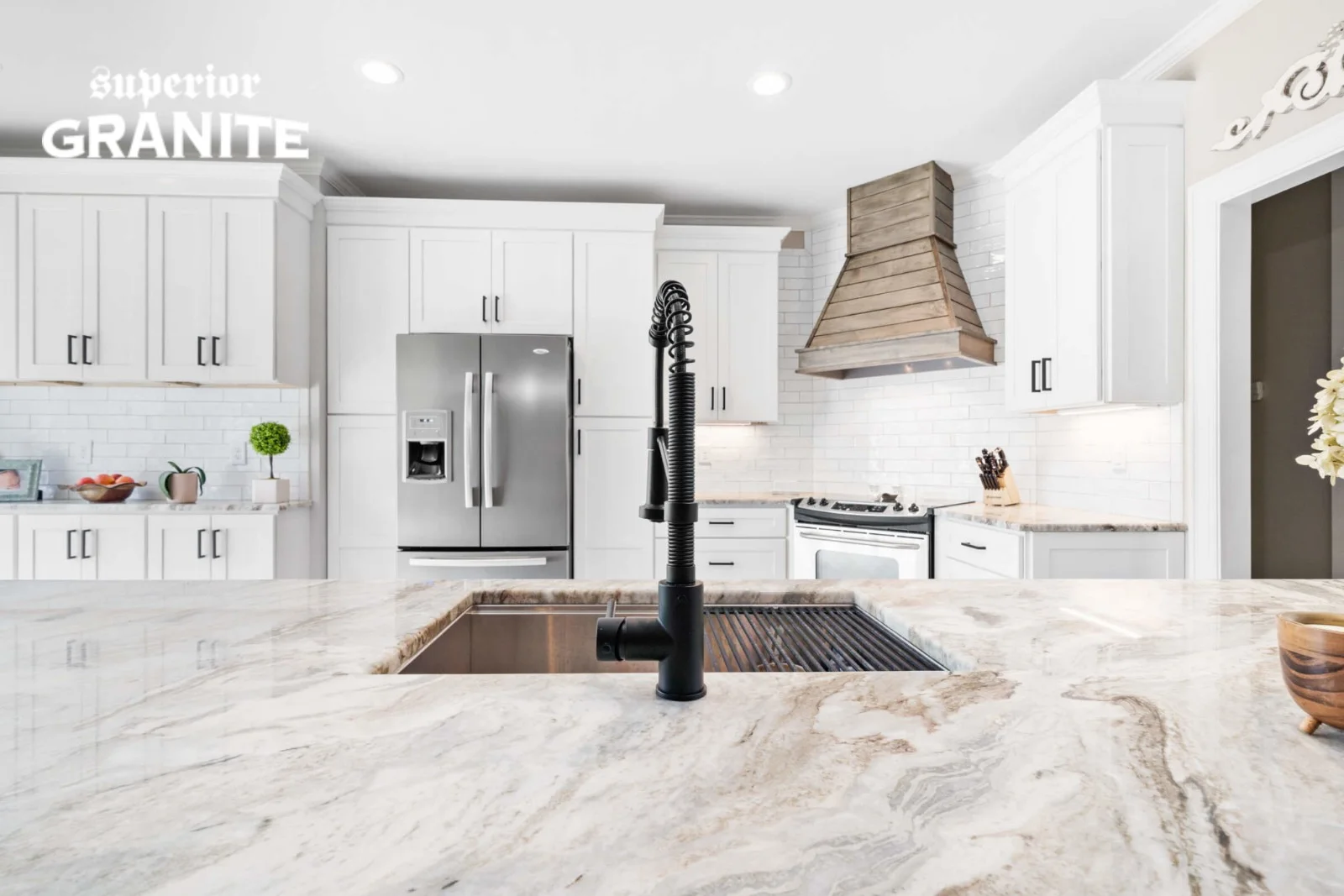Vinegar is simply referred to as a miracle cleaner, natural, cheap, and handy. But is it harmless to all, including granite? Not quite. If you’re considering using vinegar to clean granite, wait. The next article discusses whether the Clean Granite Vinegar practice is safe or dangerous, and why experts warn against it.
Table of Contents
- What Happens When You Use Vinegar on Granite?
- The Chemistry: Why Vinegar Damages Granite Surfaces
- Safe Alternatives to Clean Granite Surfaces
- Clean Granite Vinegar—Is There Ever a Right Way?
- Bullet List: Signs Your Granite Has Been Damaged by Vinegar
- Comparison of Cleaning Agents for Granite
- Granite Restoration and Professional Help
- Conclusion
- Call to action
- FAQs
What Happens When You Use Vinegar on Granite?
Granite is a pretty, absorbent natural stone. When you pour vinegar, a very acidic liquid your granite countertops, it doesn’t just clean the surface. It seeps into tiny pores, burning away the protective coating and slowly dulling the high shine.
Worse, stain removal from granite is more difficult to accomplish if etching or staining from the vinegar takes place.
Real-world effects of vinegar on granite:
- Surface etching
- Loss of luster
- Increased susceptibility to staining
- Premature wear and tear
So, although vinegar seems to be a cheap cleaner, it will ultimately cost you more in the long run when it comes to granite repair, restoration, and cleaning services.
The Chemistry: Why Vinegar Damages Granite Surfaces
Let us be a wee bit scientific—just sufficient to understand what is going on below the surface. Vinegar contains acetic acid (usually 5–7% maximum), which chemically reacts with minerals found in the granite, especially calcium-based material. The chemical reaction produces:
- Etching: Gray or chalky appearance on polished stone
- Dull sealant: Opening up the pores within the granite and leaving it prone to staining
- Color fading: Especially in dark-colored granites
Granite & marble’s removals & reinstallations or full countertop removal and sink disposal will be necessary once broken, especially in the event of irreversible stains.
Safe Alternatives to Clean Granite Surfaces
Alternatively to vinegar, use these safe, granite-friendly cleaning alternatives:
DIY Solutions:
- Warm water + mild dish soap
- Isopropyl alcohol in water (50:50)
- Baking soda paste (to break stains off granite without damaging)
Store-Bought Granite Cleaners:
Buy pH-neutral cleaners designed for granite. They are designed to clean without dissolving the sealant.
Clean Granite Vinegar: Is There Ever a Right Way?
There isn’t a point in time when Clean Granite Vineyard is recommended. Dilute vinegar is even too strong. It’s not cleaning the surface, it’s about taking care of your investment. If granite is harmed, repair is costly.
If your granite countertop already has stains or etching due to improper cleaning, don’t worry. Professional granite cleaning, sealing & polishing can restore its look, but it’s much better not to have the damage in the first place.
Signs Your Granite Has Been Damaged by Vinegar
Look for these telltale indications:
- Dull or cloudy surface
- White patches or rings
- Residue is difficult to wipe off
- Water no longer beads on the surface
- Discoloration near heavy-cleaning areas
If any of those are evident, it’s time to call in Marble & Stone Restoration | Pensacola, FL, or countertop removal near me for more drastic measures.
Comparison of Cleaning Agents for Granite
Here’s a side-by-side comparison to understand what’s safe and what’s not:
| Cleaning Agent | Safe for Granite? | Effect on Sealant | Cleaning Power | Notes |
| Vinegar | No | Damaging | Moderate | Causes etching and dulling |
| Lemon Juice | No | Damaging | Moderate | Similar acidic impact to vinegar |
| Dish Soap + Water | Yes | Safe | Good | Best for daily cleaning |
| Alcohol + Water (50:50) | Yes | Safe | Excellent | Disinfects without etching |
| Granite Cleaner Spray | Yes | Safe | Excellent | pH-balanced and designed for granite |
Granite Restoration and Professional Help
If your countertops are already damaged by vinegar or other acidic cleaning products, take professional help, such as:
- Granite cleaning, repair, and restoration services
- Professional countertop removal services (in extreme situations)
- Countertop disposal and reinstallations
- Quartz’s countertop removal and disposal, if considering a switch
Granite countertop removal is $100–$300+, by location and condition. Granite countertop replacement is even more expensive, so watch it closely.
Companies like Countertop Removal Company Florida or Expert Countertop Removal Services can remove kitchen countertops, remove old countertops, or demolish and remove countertops if they are damaged beyond repair.
Conclusion
Cleaning vinegar on granite is one of the biggest mistakes most homeowners make, considering it is a natural product. However, the damage it inflicts on your surface and sealant on the stone is expensive to fix. For instance of Clean Granite Vinegar, the answer is a big no. Instead, use safer, pH-free cleaning products and maintain your countertop in great condition for years to come.
Call to Action
Your granite countertop is an investment; treat it that way. Avoid shortcuts that result in long-term headaches. If your stone is already compromised, contact Pensacola Granite Countertop Renewal or your local countertop removal company to learn about restoration or replacement solutions.
n need of professional help? Call now for a free consultation with top-notch granite cleaning, repair, and restoration services in your area. Let the pros get it right.
FAQs
1. Can I use vinegar to clean sealed granite?
No, Sealed granite is also acidic-damage prone. Vinegar erodes the seal with time.
2. I have already used vinegar several times; what do I do?
With regular use, one or two will not harm immediately, but look for dullness or etching and stop use immediately.
3. How do I restore the shine of my granite countertops?
Use a granite polish or obtain a granite cleaning, sealing & polishing.
4. Can baking soda be used safely to clean stains on granite?
Yes. Water-based baking soda paste can gently remove the stains without damaging the surface.
5. When would I ever have to look into a complete countertop removal?
Once the granite has been etched or stained to the point of no return, it is time to tear out existing countertops and install a more durable counter.





